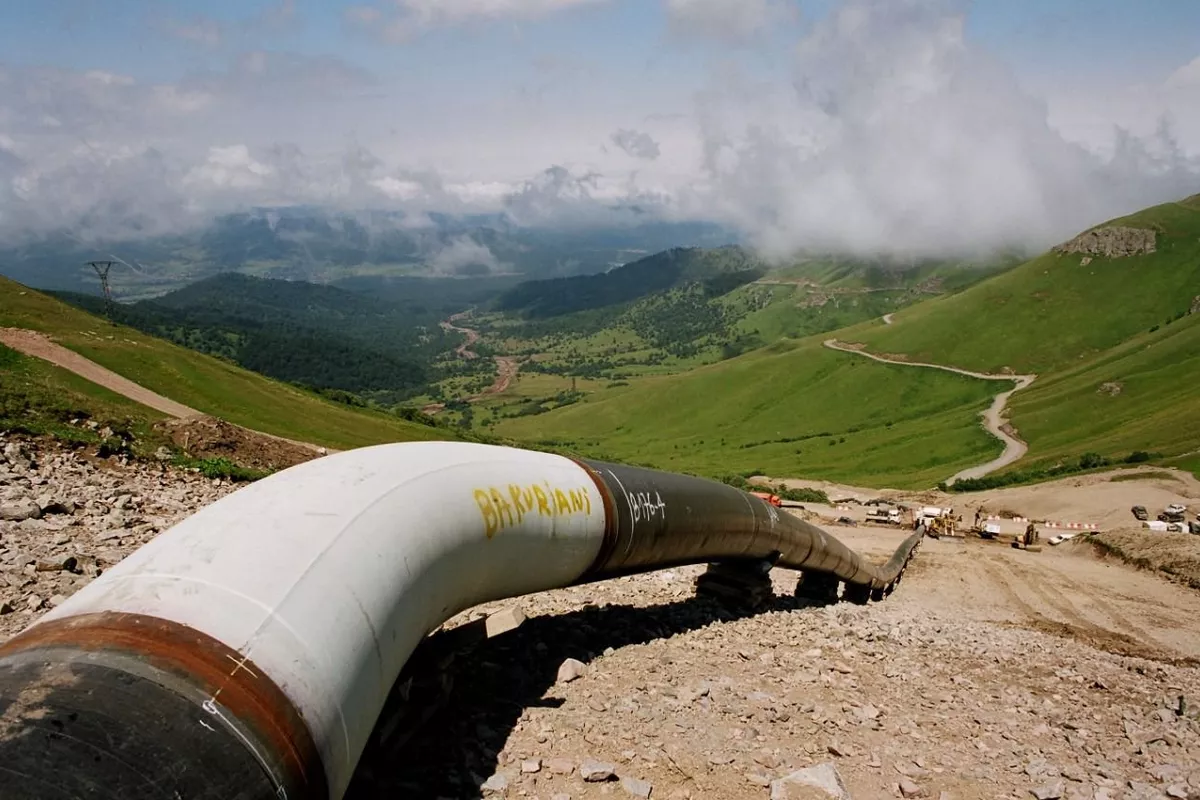
According to foreign news agencies, Russia has prohibited foreign oil tankers from loading at its major Black Sea ports without authorization from the FSB. Previously, the Russian Ministry of Transport oversaw the entry of foreign vessels into ports, but as of July 21, those powers have been transferred to the Federal Security Service, in accordance with the “Martial Law” statute.
Although the restriction is temporary, even this “temporary” measure could seriously disrupt Kazakhstan’s oil exports, potentially bringing them to a near halt. Kazakhstan exports its oil via a pipeline consortium in which American companies are shareholders. The ban could also deprive the global market of up to 2% of its oil supply.
It is worth noting that the restriction came in response to new sanctions imposed by the European Union on Russia. Among the shareholders of the Caspian Pipeline Consortium (CPC) are Chevron and ExxonMobil, complicating the consortium’s operations under the sanctions regime.
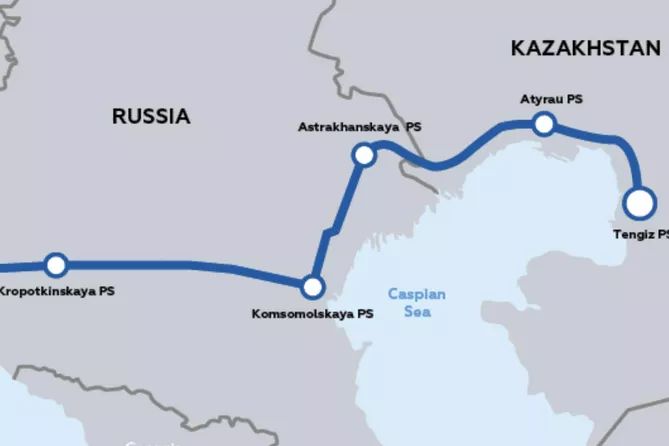
The EU's latest sanctions package, adopted on July 21, includes a complete ban on the import of Russian crude oil delivered by sea, as well as refined petroleum products, according to the European Commission’s website. “This covers 90 percent of our current oil imports from Russia. The regulation includes transitional periods allowed for the sector and global market, as well as temporary exemptions for pipeline crude oil, to enable a gradual phase-out of Russian oil. This will allow the EU and its partners to secure alternative supplies and minimize the impact on global oil prices,” the statement reads.
Nearly 80% of the oil produced in Kazakhstan is transported to European markets via the Caspian Pipeline Consortium. Therefore, following the news from Russia, Astana began looking for alternatives.
Recently, Kazakhstan’s Energy Minister, Yerlan Akkenzhenov, announced at a press conference plans to increase oil transportation volumes through the Baku-Tbilisi-Ceyhan (BTC) pipeline to 1.7 million tons this year. In 2024, 1.4 million tons were transported via BTC, and in the first six months of 2025 alone, 800,000 tons have already been shipped. This growth is already underway and is not solely related to EU sanctions. In January, the Kazakh Ministry of Energy announced plans to ship 1.5 million tons through BTC in 2025, while in February, Kurmangazy Iskaziev, Deputy Chairman of KazMunayGas, updated the forecast to 1.7 million tons.
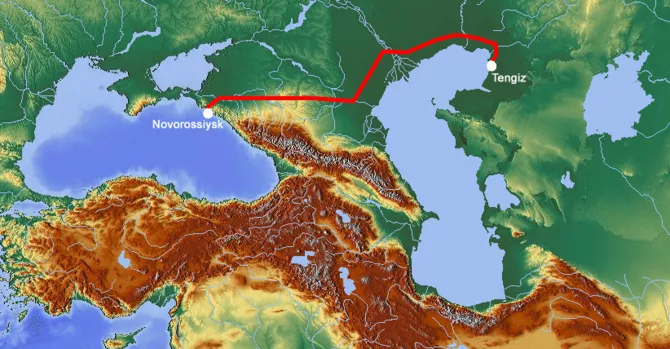
Kazakhstan began considering an alternative to the CPC not only because of sanctions against Russia's energy sector but also due to various issues arising along the pipeline. For instance, in August 2022, oil pumping through the CPC was suspended for 30 days by a court ruling in Novorossiysk, citing “environmental damage.” This was not the first time Russian environmental agencies disrupted CPC operations. It was then that Kazakhstan seriously began considering the need for an alternative and raised the issue of the dormant Baku-Supsa pipeline. The very next day, President Kassym-Jomart Tokayev called for the diversification of Kazakhstan’s oil export routes. As a top priority, he proposed exploring optimal options for using the Trans-Caspian route and instructed KazMunayGas to develop a viable implementation plan, including potential involvement of Tengiz project investors.
In March 2023, SOCAR announced the beginning of Kazakh oil transit via the BTC pipeline. The first batch of Tengiz oil was delivered to the Sangachal terminal from the Aktau port aboard the tanker President Heydar Aliyev, followed by a second shipment via the tanker Shusha. The transport was carried out under a SOCAR-KazMunayGas agreement to transit 1.5 million tons of oil annually. To support this, SOCAR upgraded its pipeline network at the Sangachal terminal.
In March 2024, SOCAR and KazMunayGas signed an agreement to gradually increase oil transit through Azerbaijan to 2.2 million tons per year. That same month, the first test shipment of oil from the Kashagan field was transported across the Caspian Sea to Azerbaijan. In November of last year, Kazakhstan’s Energy Ministry announced that Astana was considering increasing annual oil deliveries via BTC to 20 million tons.
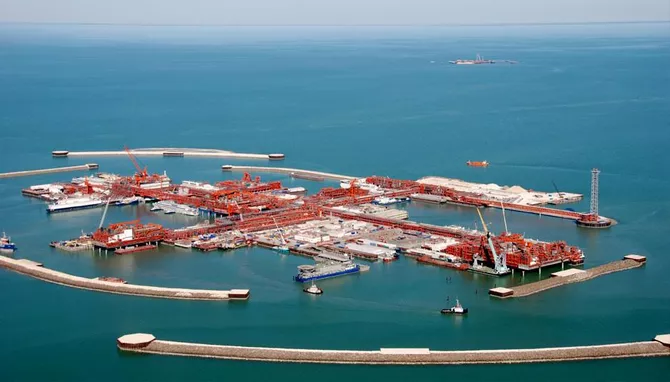
On January 27, 2025, Kazakhstan dispatched the first oil tanker from the Kashagan field to Azerbaijan for transport through the BTC pipeline.
At the end of July, President Kassym-Jomart Tokayev visited Turkey. During a meeting with President Recep Tayyip Erdoğan, they discussed, among other topics, the prospects of increasing Kazakh oil exports via the Baku-Tbilisi-Ceyhan pipeline.
According to the press service of the President of Kazakhstan, in the first half of 2025, the country increased oil exports through BTC by 12% compared to the same period last year-up to 785,000 tons (34,000 barrels per day).
However, to scale up these volumes, it is necessary to modernize the Aktau port and increase the number of large tankers. While tankers can be built or purchased, another issue looms-Caspian Sea shallowing and the need for dredging work at ports in both countries.
There is also a quality issue. Kazakh oil contains more sulfur and is thus of lower quality than Azeri oil. Mixing Kazakh crude with Azeri Light in the pipeline would reduce the market value of the Azerbaijani product-something Azerbaijan naturally wants to avoid. A separate pipeline is needed.
This brings attention to the Baku-Supsa pipeline, which has a capacity of 6 million tons per year. Kazakhstan considers the Baku-Supsa route a promising option for oil exports, Kazakhstan’s Energy Minister Yerlan Akkenzhenov said on the sidelines of the 17th ECO (Economic Cooperation Organization) Summit in Khankendi. According to him, this pipeline could become a vital alternative route to Black Sea ports, provided it is economically feasible.
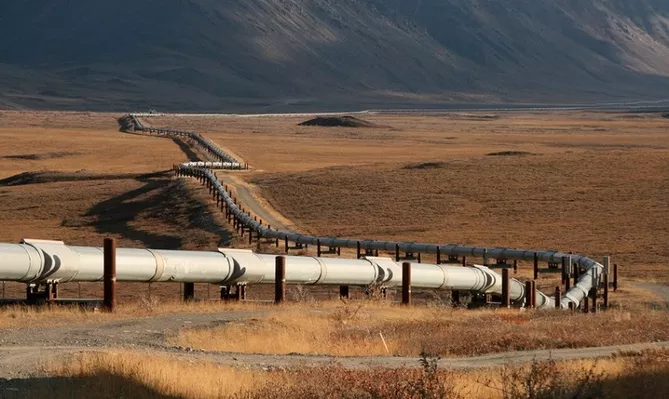
The Baku-Supsa pipeline originates in Sangachal and extends to a tanker loading facility on the Black Sea, connecting to the Georgian Supsa terminal. It is 836 kilometers long and was built to transport crude oil from the offshore Chirag field as part of the ACG (Azeri-Chirag-Gunashli) project.
The decision to construct the Baku-Supsa pipeline was made in 1996 by the presidents of Azerbaijan and Georgia. A corresponding agreement was signed by Amoco, SOCAR, and the Georgian government. The pipeline was officially inaugurated on April 17, 1999, at the Supsa oil terminal. The new pipeline achieved two critical goals: eliminating Russia’s monopoly on hydrocarbon transport to Europe and enabling the export of high-quality Azerbaijani crude in its pure form-without blending with lower-quality Russian oil. Furthermore, the cost of transporting oil via Baku-Supsa was nearly five times lower than through the Baku-Novorossiysk route.
With the Baku-Supsa pipeline back in operation after years of dormancy, Kazakhstan now has yet another alternative for exporting its oil.
Returning to BTC, it is worth emphasizing that the importance of the Baku-Tbilisi-Ceyhan pipeline continues to grow. In addition to transporting Azerbaijani oil to Europe, BTC now serves as a vital transit corridor for other oil-producing countries in the region. The availability of such an alternative allows Kazakhstan to feel confident under any geopolitical circumstances.
The BTC pipeline is safe and reliable-just like Azerbaijan itself.
By Tural Heybatov
Share on social media